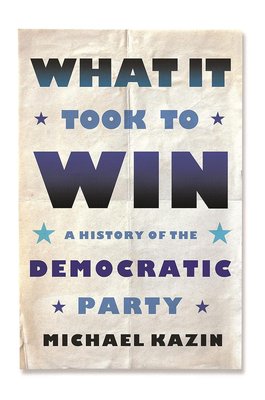A New York Times Book Review Editors' Choice One of Kirkus Reviews ' ten best US history books of 2022 A leading historian tells the story of the United States’ most enduring political party and its long, imperfect and newly invigorated quest for “moral capitalism,” from Andrew Jackson to Joseph Biden. One of Kirkus Reviews ' 40 most anticipated books of 2022 One of Vulture 's "49 books we can't wait to read in 2022" The Democratic Party is the world’s oldest mass political organization. Since its inception in the early nineteenth century, it has played a central role in defining American society, whether it was exercising power or contesting it. But what has the party stood for through the centuries, and how has it managed to succeed in elections and govern? In What It Took to Win , the eminent historian Michael Kazin identifies and assesses the party’s long-running commitment to creating “moral capitalism”―a system that mixed entrepreneurial freedom with the welfare of workers and consumers. And yet the same party that championed the rights of the white working man also vigorously protected or advanced the causes of slavery, segregation, and Indian removal. As the party evolved towards a more inclusive egalitarian vision, it won durable victories for Americans of all backgrounds. But it also struggled to hold together a majority coalition and advance a persuasive agenda for the use of government. Kazin traces the party’s fortunes through vivid character sketches of its key thinkers and doers, from Martin Van Buren and William Jennings Bryan to the financier August Belmont and reformers such as Eleanor Roosevelt, Sidney Hillman, and Jesse Jackson. He also explores the records of presidents from Andrew Jackson and Woodrow Wilson to Bill Clinton and Barack Obama. Throughout, Kazin reveals the rich interplay of personality, belief, strategy, and policy that define the life of the party―and outlines the core components of a political endeavor that may allow President Biden and his co-partisans to renew the American experiment.






